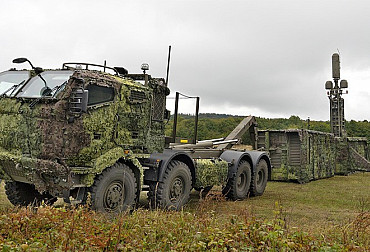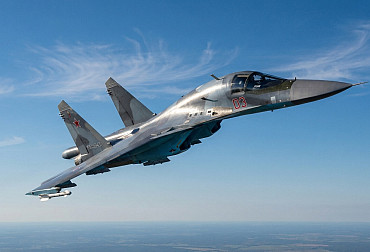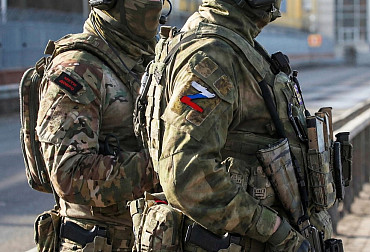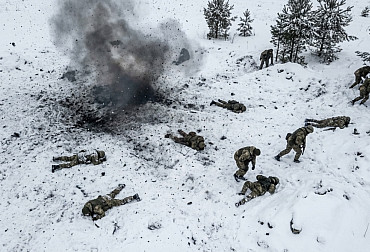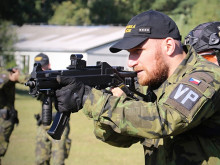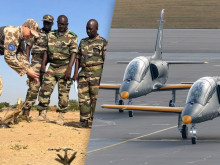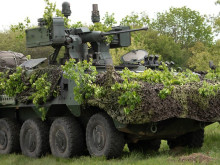A Test of defense and politics: The Polish incident and Czech elections ahead
The incident in which Russian drones violated Polish airspace on September 10, 2025, accelerated and intensified the pre-election debate in the Czech Republic. From an international perspective, this was a clear violation of the sovereignty of a NATO member state, which required an immediate response from the Alliance. In the Czech political context, however, the event revealed deep ideological and strategic rifts between the ruling pro-Western coalition and opposition parties. Events in the Polish border region thus unexpectedly became the main topic of the campaign, dividing the political scene into two distinct camps: one uncompromisingly pro-Alliance and the other advocating greater neutrality and emphasizing economic stability.
.jpg)
NATO responded to the events immediately and decisively, and not only at the diplomatic level. Alliance Secretary General Mark Rutte announced in Brussels the launch of Operation Eastern Sentry, which aims to strengthen air defense on the eastern flank. In his statement, Rutte said: “In the early hours of Wednesday, September 10, Polish airspace was violated by a large number of Russian drones. NATO's air defense was activated and successfully secured the Alliance's territory.” The Secretary General does not consider this unprecedented violation of NATO airspace to be an “isolated incident.” He warned of the increasing frequency of Russian “recklessness” in the air along NATO's eastern flank — particularly drones, which have previously violated the airspace of Estonia, Lithuania, Latvia, and Romania. He described all these incidents as “dangerous and unacceptable.”
Colonel Mitko Müller from the German Ministry of Defense later commented on the details of the incident. Among other things, he described the role of German Patriot air defense systems deployed in Poland: "German Patriot positions in Rzeszów, at the weapons transshipment point for Ukraine, were involved in the fight against drones with their radars." However, Müller also specified that no missiles were fired, nor were any German combat aircraft involved, as they had already been withdrawn from the area. The colonel also confirmed that it is still unclear how many drones were shot down by Polish and NATO forces and how many crashed, for example, due to a lack of fuel after exceeding their maximum range.
The Czech government coalition's response to the incident was immediate, unanimous, and uncompromising. Prime Minister Petr Fiala (ODS) did not hesitate to strongly condemn the situation, stating that “Russia is testing NATO's defense capabilities.” At the same time, he emphasized the need to “invest in defense,” which is directly in line with the Alliance's goal of gradually increasing defense spending to 5% of GDP. Prime Minister Fiala went even further in his statement, calling on all political entities to clearly condemn the attack, noting: “If they do not do so, they are consciously or unconsciously serving Russia's interests.” In doing so, he clearly drew a line in the sand that will serve as a reference point for voters.
President Petr Pavel's statement was similarly forceful and unequivocal. In his view, “the Russian drones shot down over Polish territory clearly confirm how much we are affected by escalating Russian aggression.” Referring to his military past, Pavel did not hesitate to add that “Czechia, our neighbors, and Europe are not safe” and that “we cannot pretend that this war does not concern us.” Other political figures also demonstrated the government's unity. Foreign Minister Jan Lipavský described the incident as “further proof that Moscow's war against Ukraine threatens us all” and called for the strengthening of air defense on NATO's eastern border. The Ministry of Defense, led by Jana Černochová (ODS), offered Poland concrete assistance and confirmed the deployment of Mi-171Š helicopters. Politicians from the ruling parties, such as Marek Výborný (KDU-ČSL), then escalated the rhetoric even further. “Anyone who doubts our participation in NATO is gambling with our security.” In doing so, Výborný is trying to simplify the choice for undecided voters—either they are for NATO and security, or they risk its deterioration. This collective appearance by government officials aims to present the cabinet as a responsible and reliable ally with a clear vision and strategy for the country's defense.
While the government responded in a unified and decisive manner, responses to the incident varied significantly on the other side of the political spectrum, revealing diverse opinions within the opposition. The main opposition leader, Andrej Babiš (ANO), commented on the event in a relatively restrained manner. His statement of “full support for Poland” lacked detailed commentary and any explicit condemnation of Russia. This approach is in line with Babiš's pre-election strategy, which seeks to avoid sharp confrontation on international issues and focuses on domestic economic problems such as inflation and the cost of living.
A completely different and controversial stance was taken by representatives of the Stačilo! (Enough!) group, a strong component of which is the pro-Russian KSČM. Former Foreign Minister Lubomír went so far as to speculate about the Ukrainian origin of the drones. By spreading this disinformation, he came very close to the Russian narrative. The head of the Communists and leader of Stačilo!, Kateřina Konečná, further relativized the role of Russian drones: “If Russian drones really damaged a family home in Poland, it is highly reprehensible and only shows how important it is to end this conflict as soon as possible!” Konečná condemned the incident, but primarily used it to reinforce her argument about the need to start peace negotiations—a key issue for the pro-Russian and neutral electorate.
The drones entered Polish territory just three weeks before parliamentary elections in the Czech Republic, which adds to the extraordinary significance of the event. This incident has the potential to influence undecided voters, who may realize that security is not an abstract concept but a tangible reality. While the government's strong and unified stance may strengthen it in the eyes of the public, the ambiguous and sometimes pro-Russian comments of some members of the opposition may damage its credibility. The incident thus served as a “litmus test” that clearly showed which political forces are prepared to defend Czech interests within the Alliance and which could jeopardize the country's security commitments. Disunity within the opposition, and in particular the tendency to question Russian aggression, increases support for the ruling parties and their vision of remaining a firm part of Western defense structures. SPOLU and STAN have strengthened their credibility for leading the country in uncertain times with their swift and unified response to Russian drones in Poland. This may help mobilize their traditional voters and, at the same time, win over those who remain undecided.
The entire drone incident and the subsequent political reaction in the Czech Republic are a clear example of how geopolitical events directly influence domestic political debates and pre-election preferences. While the coalition of pro-Western parties has shown unity and determination in defending national interests within the framework of NATO's collective security, part of the opposition is seeking a much more cautious and pragmatic approach. However, this approach risks relativizing Russian aggression. The elections are thus turning into a referendum on the Czech Republic's foreign policy orientation and the extent to which Czechs are willing to bear the costs and risks associated with a firm pro-Western stance. The drones over Poland have become a symbol that has the potential to redraw the electoral map and influence the future of Czech foreign and security policy for many years to come. From a technical point of view, they confirmed the urgent need to strengthen integrated air defense on NATO's eastern flank and highlighted the Alliance's strategic vulnerability, as mentioned by Secretary General Rutte. It is precisely on the basis of these conflicting positions that voters are likely to make their decisions in the upcoming elections, where the main issue will no longer be just the economy, but above all security.











